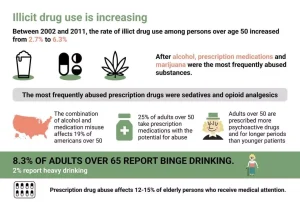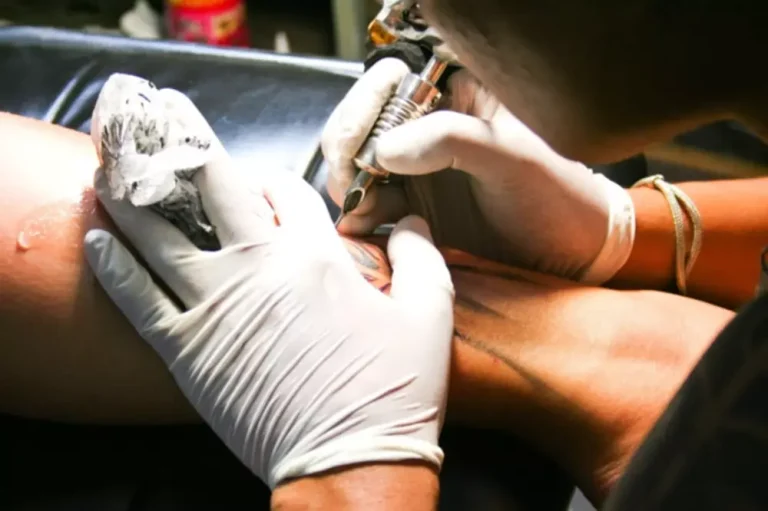
The establishment of a pattern in alcohol abuse marks this transitional stage, which introduces cyclical abuse. The cycle begins when the individual’s drinking starts to cause problems in everyday life. Tolerance tends to sneak up on people when they’re developing an alcohol addiction. When two beers don’t produce a good buzz anymore, a person may start drinking an entire six-pack in one sitting.

Dependence Formation
With excessive alcohol consumption, this important organ can’t metabolize Vitamin D, which could develop into a deficiency. Some common signs and symptoms of cirrhosis include fatigue, itchy skin, weight loss, nausea, yellow eyes and skin, abdominal pain and swelling or bruising. Alcoholism robs people of the most important relationships in their lives. While many people can repair relationships with those closest to them, others may not have that option. These relationships provide support and motivation to continue staying sober.
Signs You May Be Developing an Addiction to Alcohol
A seven-day alcohol detox can result in a rejuvenated body, a clearer mind, and the development of healthier lifestyle habits. Building a support system may take time and involve identifying individuals who are genuinely supportive and understanding. It is essential to surround oneself with people who uplift and encourage sobriety while distancing oneself from those who may enable or trigger relapse. Building a strong support system is crucial for individuals in recovery.

Signs of Tolerance and Dependence
Alcoholics Anonymous is the most popular and readily-available of these groups, but there are secular support groups that do not use the 12 steps or any religious or spiritual forms of support. For more information and resources on how to find quality alcohol treatment, visit the NIAAA Alcohol Treatment Navigator. The purpose of the 12 traditions is to help provide guidelines about the relationships between the group and the community and between individual members of the group. In the action stage, people have chosen an approach to sobriety and they’re executing it. Others in the precontemplation stage may feel hopeless and helpless about their situation or overwhelmed by the energy required to make a change.
It’s a time when individuals must navigate through a complex and often uncomfortable transition as their bodies and minds adjust to functioning without alcohol. Research indicates that commitment, support systems, and coping strategies play essential roles during this period. As every detox experience is unique, healthcare providers monitor patients closely, adjust treatments as needed, and provide support throughout the detoxification process. The goal is to ensure a safe transition from physical dependence on alcohol to a readiness for therapeutic interventions that promote sustained recovery. Detoxification, or detox, marks the initial stage in the process of alcohol recovery, where medical intervention is often critical.

Acute alcohol withdrawal can occur after an extended period of heavy binge drinking, and usually takes place within the first week of quitting alcohol. The acute alcohol withdrawal timeline and process looks different for everyone, and the symptoms can range from uncomfortable to potentially dangerous. These symptoms of acute alcohol withdrawal can include alcohol shakes, nausea, delirium tremens, hallucinations, and more. In general, experts recommend engaging in an alcohol recovery program for approximately one year.
Effective Therapies and Treatments During Early Sobriety
Alcohol has a remarkable ability to allow drinkers to forget or stop caring about their issues, which is why it’s so tempting to escalate when someone is feeling stressed. Social drinking to curb anxiety may seem harmless, and many people can do it without moving stages of alcoholic recovery further through the stages of alcohol use. However, it indicates a mindset in which someone is viewing alcohol as the solution to a problem, and that attitude can be incredibly dangerous. Alcohol misuse and addiction can have harrowing and hazardous side effects at every phase.
Do I need to detox at an alcohol addiction treatment center?
Alcohol detoxification can have potentially life-threatening complications, especially for individuals with severe alcohol dependence. Medical professionals can provide the necessary support and interventions to ensure the safety and well-being of the individual throughout the detoxification process. Alcohol rehabilitation is essential for individuals struggling with alcohol addiction. It provides a comprehensive and holistic approach to address the physical, emotional, and psychological aspects of addiction.
What is MAT? Frequently Asked Questions About Medication Assisted Treatment
The DSM is the latest attempt by doctors to understand and diagnose this disorder. All Addiction Resource content is medically reviewed or fact checked to ensure as much factual accuracy as possible. American Addiction Centers (AAC) is committed to delivering original, truthful, accurate, unbiased, and medically current information. We strive to create content that is clear, concise, and easy to understand. Take our short (it takes less than 5 minutes) questionnaire based on the DSM-5 criteria to assess the severity of your alcohol use.
- The severity of alcohol withdrawal depends on the several factors, including the duration and extent of alcohol consumption.
- In this stage, the person has achieved sobriety, and they are focused on sustaining their recovery and preventing relapse.
- Rather than emphasizing powerlessness and embracing a higher power, the SMART Recovery approach emphasizes viewing substance use as a habit that people can learn to control.
Our wide variety of services ranges from outpatient to residential and everything in between, providing the appropriate level of medical supervision and support for alcohol addictions of any severity. Should you need medication-assisted treatment or withdrawal management, Gateway has you covered. Our addiction therapy services include treatment for those with a dual diagnosis of addiction and another mental illness.
